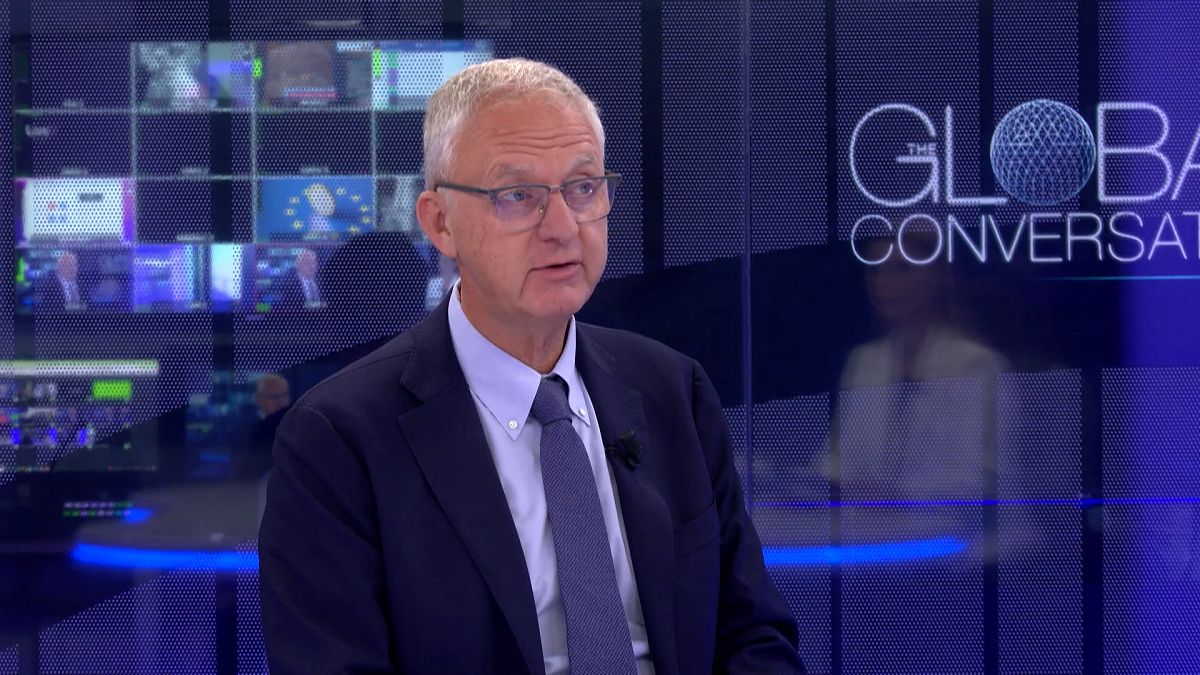The European Union Drugs Agency is facing new challenges as the illegal drugs trade continues to surge across the continent. Alexis Goosdeel, Executive Director of the agency, highlighted the growing diversification of illegal drugs and increasing violence linked to organised crime during an interview with Isabel Marques da Silva in The Global Conversation. Goosdeel emphasized the need for new solutions and enhanced forms of cooperation to address these pressing issues.
One of the key challenges identified by Goosdeel is the emergence of new illicit substances, such as ‘pink cocaine,’ which are not yet classified as drugs but have psychoactive effects on the brain. The European Union Drugs Agency has established a drug alert system to monitor these substances and has detected over 950 of them that have never appeared on the market before. Some of these substances have the potential to be harmful or even lethal to health. Goosdeel also highlighted the prevalence of other substances, like ketamine, which are becoming increasingly problematic and appearing more frequently.
In addition to the rise of new narcotics, traditional hard drugs like cannabis, cocaine, and amphetamine are still widely used in Europe. Goosdeel noted that drug trends are constantly changing, with the increasing popularity of ‘chemsex’ drugs, which are used to sustain long sexual activity and engage in multiple sexual encounters. The Executive Director highlighted the challenges posed by these evolving drug trends and stressed the need for agile responses to address the complex nature of drug use in modern society.
The surge in drug-related violence across Europe is directly linked to the activities of criminal gangs who import and distribute illicit drugs from Latin America and other parts of the world. As these gangs expand their operations, the level of violence associated with the drug trade has increased significantly. Goosdeel expressed concern about the threat to the rule of law posed by the rise in drug-related violence in the European Union, noting that it has become a major issue in recent years. The Executive Director emphasized the need for coordinated efforts to combat drug-related violence and prevent further escalation of criminal activities.
The Covid-19 pandemic has had a significant impact on the drug trade, as more drugs are now being imported through containers, presenting new challenges for law enforcement agencies. Goosdeel highlighted the need for proactive measures to address the changing tactics of organized criminal groups and prevent the spread of drug-related violence across the European Union. The Executive Director emphasized that the current situation is just the tip of the iceberg, and that more needs to be done to address the underlying issues driving the surge in drug-related violence.
In conclusion, the European Union Drugs Agency is facing a complex and evolving drug landscape, with new challenges emerging on a regular basis. Goosdeel stressed the importance of cooperation and proactive measures to address the growing diversification of illegal drugs, the rise of drug-related violence, and the changing tactics of criminal gangs. By staying alert and adapting to the changing drug market, law enforcement agencies can work together to combat the spread of illegal drugs and protect the rule of law across the European Union.











